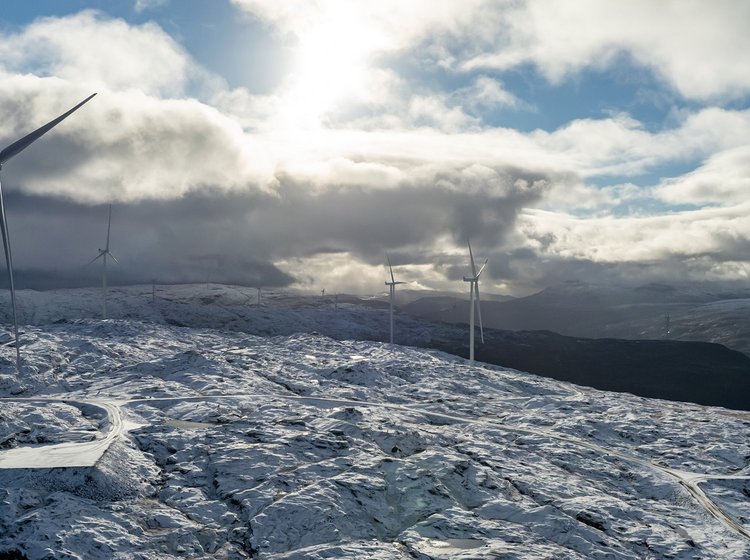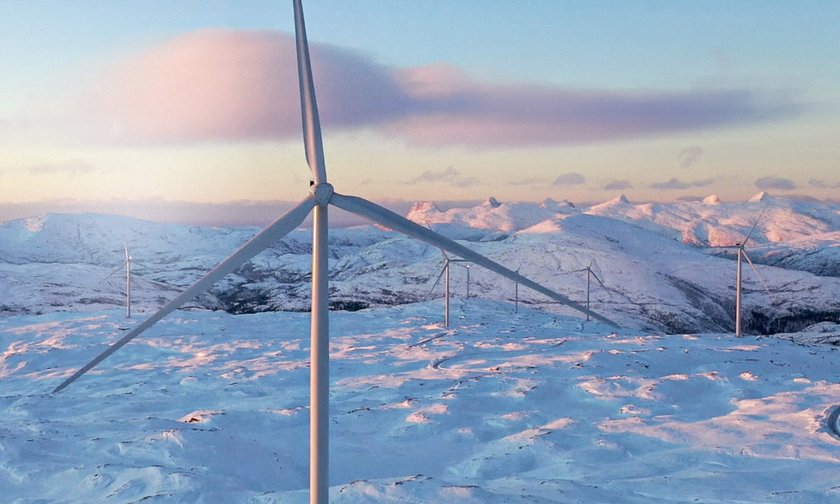
At Aquila Capital, we are committed to managing real assets in a responsible way. Central to this is our active stakeholder engagement, which is intended to build strong relationships and generate shared value in the communities in which we operate.
We aim to balance the benefits of real assets, such as clean energy, with local communities’ needs for shared value creation and environmental protection. By collaborating with stakeholders, we aim to align long-term goals, build trust and encourage an open dialogue through effective grievance mechanisms.
The Rock - Øyfjellet Wind Park

The Øyfjellet Wind Park (the Rock) in Norway began in 2011 as a project firmly rooted in the local community. Øyfjellet Wind Park is now a significant wind power producer, supplying local Norwegian industry with renewable energy. The wind park is a long-term contributor to employment, growth and development in the whole region. The project has been through an extensive licensing process with approval from local and national authorities.
Value creation is a key societal consideration for the local municipality and the Rock is expected to contribute more than 6 million euros annually in the form of local contracts, property tax, income tax, land rental payments, sponsorship funds and more. In addition, we have committed to several measures that will benefit the local community. One example is the completion of the Helgeland steps and the opening of a new 72 km road for hiking and cycling. In addition, an annual budget of more than 20,000 euros will be provided for onsite community activities, with details to be decided by the municipality.
Alongside direct benefits to the local community, there are also indirect benefits resulting from our relationship with aluminium producer Alcoa. It received a 15-year fixed price for electricity used by the aluminium smelter in Mosjøen, a key contributor to employment and growth in the area. The competitive price is crucial for Alcoa’s production. The Mosjøen smelter employs 450 people and has an annual capacity of almost 200,000 metric tonnes of aluminium. With the clean electricity provided by the project satisfying more than one third of the smelter’s annual consumption, it benefits the local community through job creation and economic growth, as well as supporting a lower carbon footprint.
Øyfjellet Wind acknowledges that it could affect the local reindeer herding activities, as one of the routes for reindeer migration is partly located in the plan area for the wind park. It is important to recognise and value the heritage of the local Sami people, and the cultural and economic importance of reindeer husbandry to the Sami district. We remain committed to ensure co-existence in our projects, and support Øyfjellet Wind’s efforts to limit impacts of the wind park on the reindeer husbandry.